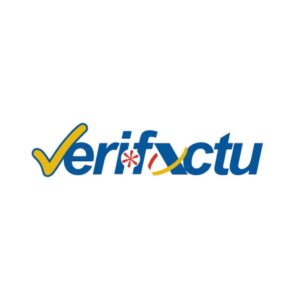Patricia Martínez Ruiz
In Spain, the obligation to issue electronic invoices affects all companies and self-employed individuals who maintain commercial relations with the public administration. This has been the case since January 15, 2015, in accordance with the Law 25/2013, on the promotion of electronic invoicing and the creation of the accounting registry of invoices in the public sector. except for some exceptions, for example, that the amount is less than 5,000 euros.
In addition, since the entry into force of Law 18/2022, on the creation and growth of companies ( Create and Grow Law ), all companies and self-employed professionals, without exception, will be obliged to issue electronic invoices in their commercial relations between companies (B2B model). This measure is being implemented progressively.
Companies already issuing electronic invoices
Companies that already issue electronic invoices to other private sector companies do so as an anticipated response to the obligation that is about to come into force and that will affect, in a first phase, all those with an annual turnover of more than 8 million euros.
The rest of the companies and self-employed professionals are obliged to invoice electronically two years after the approval of the regulation. The regulatory development (the draft of which was presented in June 2024) is still pending final approval (as of July 2025), so the specific deadlines are in the implementation phase, although they could arrive soon, being obliged to issue electronic invoicing all companies by 2026.
Under this regulation with respect to electronic invoicing electronic invoicingThe Tax Agency will be able to extract statistical information from the electronic invoices sent to the public electronic invoicing system and ensure compliance with the regulations on commercial delinquency thanks to the exhaustive traceability process.
Moreover, this information will be sent to the State Observatory on Private Arrears of Payment which will develop a report on the situation of payment terms, which will be presented and approved at the State Council of SMEs. State Council of SMEs .


The Verifactu
The above should not be confused with the implementation of other measures that promote electronic invoicing in the same way and that are regulated by the Anti-Fraud Law and the Verifactu .
The first is aimed at strengthening fiscal supervision over companies and the second sets out the technical requirements that companies must meet when using electronic invoicing software. electronic invoicing software.
In this regard, it should be noted that the Tax Agency has set up a platform for free use, VERIFACTU designed so that self-employed professionals and SMEs can carry out their e-invoicing, in compliance with their tax obligations, without incurring in an extra expense: the acquisition of a new invoicing software enabled to meet the new legal invoicing requirements.
As for the mandatory nature of its use, the Royal Decree Royal Decree 254/2025 of April 1, which amends the Royal Decree of 2023, establishes January 1, 2026 as the key date for corporate income taxpayers, and July 1, 2026 for the rest of companies and the self-employed.
The use of this tool is optional. Companies and professionals can send their electronic invoices through other software which, of course, must comply with the new requirements established in the regulation.
A different case is that of territories such as the Basque Country. In this Autonomous Community, its provincial councils have fully implemented the TicketBAI system. That is to say, all companies and self-employed individuals in Gipuzkoa and Alava already invoice electronically to other companies inside and outside the territory, and in Bizkaia, all except non-profit organizations, education, agriculture, fishing and cultural services, which have a few more months of margin. In all of them, the provincial councils have set up electronic invoicing platforms for free use by the smallest companies and self-employed individuals.


Why is electronic invoicing mandatory?
The imposition of electronic electronic invoicing responds to multiple objectives that have been promoted by the EU for all its Member States:
The fight against tax fraud and the underground economy, facilitating tax control.
The digitization and modernization of the business fabric, in line with the objectives of the Recovery, Transformation and Resilience Plan, in Spain, and especially in the case of SMEs and the self-employed. The digitalization and modernization of the business fabric, in line with the objectives of the Recovery, Transformation and Resilience Plan, in Spain, especially in the case of SMEs and the self-employed.
Reduction of administrative costs, especially in accounting and tax management.
Improved payment terms and greater transparency in commercial relations, a priority for promoting the growth of SMEs.
Improved regulatory compliance and automation of accounting and financial processes.
What does the European Union say about electronic invoicing?
The European Union actively promotes the adoption of electronic invoicing, especially in public procurement, e.g. through the Directive 2014/55/EU , which establishes, as of April 18, 2019, that public administrations must accept and process electronic invoices in a structured format compliant with the European standard (EN 16931).
The objectives, broadly speaking, are:
- Promote interoperability and harmonization among Member States.
- Drive the digitalization strategy of the European Single Market aligned with the digital economy framework.
- That EU companies can gain competitiveness not only within the European market, but also at the international level.
In line with these goals, in 2022, the European Commission launched the project VAT in the Digital Age (ViDA) project, which calls for increased VAT automation and a possible mandatory common e-reporting model, with a special emphasis on the use of electronic invoicing as a structural anti-fraud tool.
In which other countries has electronic invoicing been imposed on companies?
Several countries have implemented mandatory electronic invoicing electronic invoicingwith varying degrees of maturity and scope.
A relevant example in Europe is Italy, a pioneer in the EU, as from 2019 electronic invoicing is mandatory for all B2B, B2C and B2G transactions, through the state system Sistema di Interscambio (SdI).
The imposition of electronic electronic invoicing is a growing global trend, driven by fiscal, economic and technological objectives. In Spain and the EU, it is being consolidated as a mandatory and harmonized model, aligned with business digitalization and tax transparency. This transformation represents a strategic opportunity for companies, especially in terms of operational efficiency, cost reduction and regulatory compliance.
Patricia Martínez Ruiz





